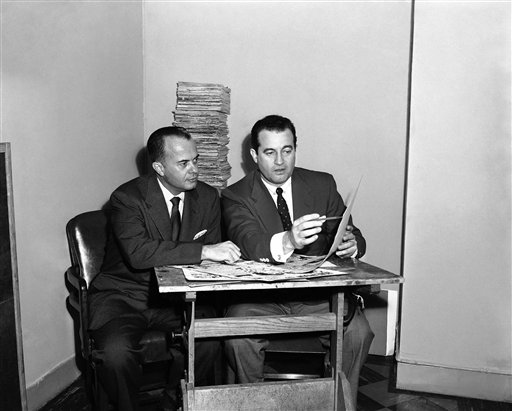In Bantam Books, Inc. v. Sullivan, 372 U.S. 58 (1963), the Supreme Court ruled that states must provide adequate procedural safeguards when establishing a mechanism to declare books obscene.
State commission threated distributors of objectionable books
The Court’s decision favored a group of book publishers who were suing a state commission created to take preventative action to stop juvenile delinquency. Part of the commission’s responsibility was “to educate the public concerning any book . . . or other thing containing obscene, indecent or impure language” that could corrupt youth.
The commission carried out this responsibility by threatening the distributors of material deemed to be “objectionable” with prosecution in an attempt to suppress obscene material. In its fact-finding capacity, the trial court found the commission’s attempted suppression to have been successful.
Publishers said the commission’s actions were censorship
The book publishers argued that the actions of the commission were an act of government censorship that failed to provide safeguards for protected speech. The state of Rhode Island argued that the commission lacked the power to suppress obscenity, because its power was “limited to informal sanctions.”
The state also argued that the actions of the commission were not actions of the state, and as such did not fall within the scope of the 14th Amendment. The trial court agreed with the book publishers and granted the injunction against the commission, holding its actions unconstitutional. The Rhode Island Supreme Court, however, reversed the decision of the trial court.
Supreme Court agreed with publishers
The U.S. Supreme Court voted 8-1 to reverse the decision of the Rhode Island Supreme Court, but only six justices signed onto the majority opinion written by Justice William J. Brennan Jr. (Justices Hugo L. Black and Tom C. Clark concurred in the result, Black without a separate opinion).
In the majority opinion, Justice Brennan addressed the arguments made by Rhode Island, writing that through its use of threats of prosecution, the commission engaged in actions that amounted to informal censorship. Furthermore, these actions constituted acts of the state under the Fourteenth Amendment because the commission operated “under color of state law.”
Court reiterated need for procedural safeguards in determining obscenity
Brennan then addressed the arguments made by the book publishers and found them to have merit. He wrote that although the Court’s decision in Roth v. United States (1957) held that obscenity was not protected by the First Amendment, state regulations must contain certain procedural safeguards. These safeguards require “that regulation by the States of obscenity conforms to procedures that will ensure against the curtailment of constitutionally protected expression.”
Without these procedural safeguards, there is essentially a system of prior restraint, which, Justice Brennan noted, could only operate with judicial oversight, as in Kingsley Books, Inc. v. Brown (1957).
In dissent, Justice John Marshall Harlan II argued that none of the reasons put forth by the majority justified ruling against what was in his view “an attempt to cope with a most baffling social problem” rather than an attempt to suppress the freedom of expression.

